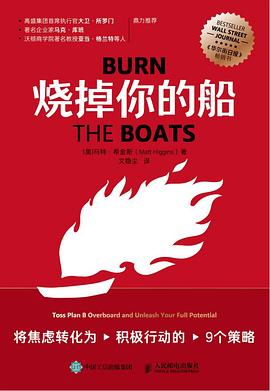The Nature of Technology
内容简介
"More than any thing else technology creates our world. It creates our wealth, our economy, our very way of being," says W. Brian Arthur. Yet, until now the major questions of technology have gone unanswered. Where do new technologies come from -- how exactly does invention work? What constitutes innovation, and how is it achieved? Why are certain regions -- Cambridge, England, in the 1920s and Silicon Valley today -- hotbeds of innovation, while others languish? Does technology, like biological life, evolve? How do new industries, and the economy itself, emerge from technologies? In this groundbreaking work, pioneering technology thinker and economist W. Brian Arthur sets forth a boldly original way of thinking about technology that gives answers to these questions. The Nature of Technology is an elegant and powerful theory of technology's origins and evolution. It achieves for the progress of technology what Thomas Kuhn's The Structure of Scientific Revolutions did for scientific progress. Arthur explains how transformative new technologies arise and how innovation really works. Conventional thinking ascribes the invention of technologies to "thinking outside the box," or vaguely to genius or creativity, but Arthur shows that such explanations are inadequate. Rather, technologies are put together from pieces -- themselves technologies -- that already exist. Technologies therefore share common ancestries and combine, morph, and combine again to create further technologies. Technology evolves much as a coral reef builds itself from activities of small organisms -- it creates itself from itself; all technologies are descended from earlier technologies. Drawing on a wealth of examples, from historical inventions to the high-tech wonders of today, and writing in wonder fully engaging and clear prose, Arthur takes us on a mind-opening journey that will change the way we think about technology and how it structures our lives.
......(更多)
作者简介
布莱恩•阿瑟(Brian Arthur)
复杂性科学的重要奠基人。拥有加州大学伯克利分校经济学博士学位,37 岁就成为斯坦福大学最年轻的经济学教授。
圣塔菲研究所元老级人物。投身于复杂性科学领域研究,在圣塔菲研究所“科学委员会”任职时间长达18 年,在“理事会”任职10 年。
研究正反馈机制的先驱,以“收益递增规律”为基础形成了自己的新经济思想。
荣获复杂性科学领域的首届拉格朗日奖。
1990 年荣获熊彼特奖。
......(更多)
目录
......(更多)
读书文摘
科学是一种观念,即自然在本质上是可知的,可以被探索、被究因的。如果以高度控制的方式对现象及其背后的含义进行探索,就可以获得对自然的理解;科学是一套实践和思维方式,包括理论化、想象和猜测;科学史一系列认识(knowings),一系列由过去的观察与思考积累起来的理解;科学是一种文化,一种关于信仰与实践、友谊与思想交流、观点与确证、竞争与互助的文化。
技术是对现象的驾驭,而这很大程度上是由科学揭示的。同样,科学也构建与(builds from)技术,或者说,科学是从它的技术中形成的,从哪些要使用技术的仪器、方法和实验中形成的。
......(更多)






